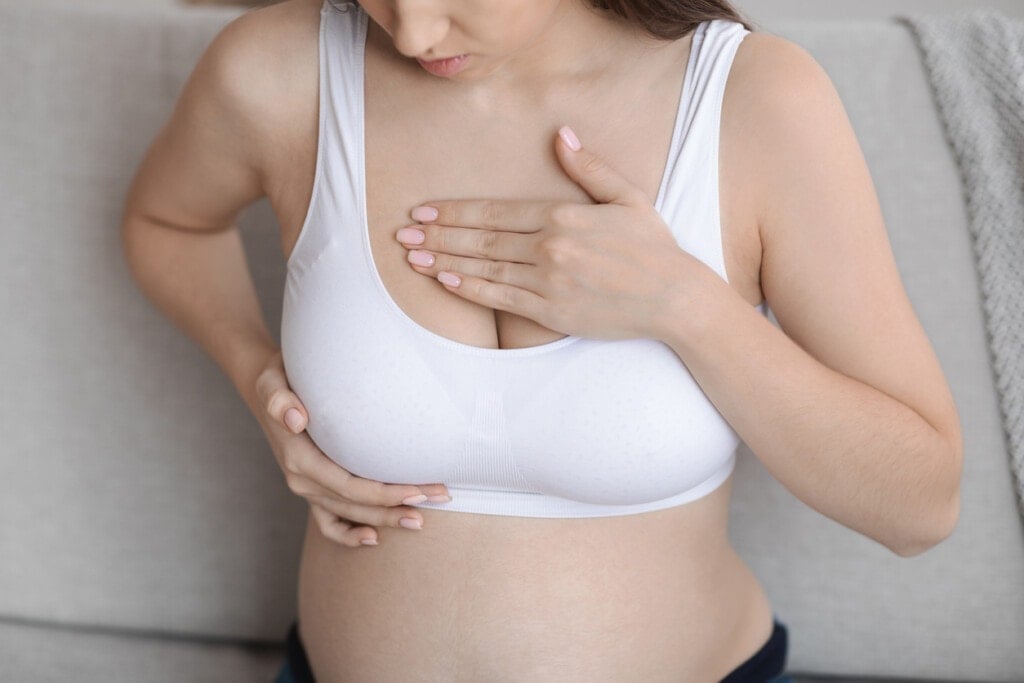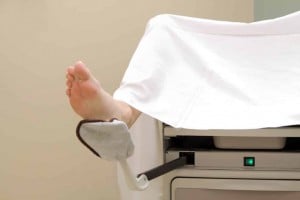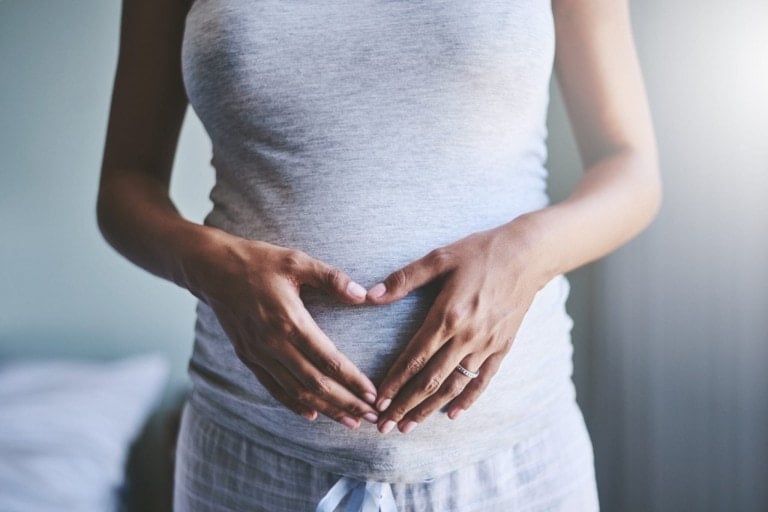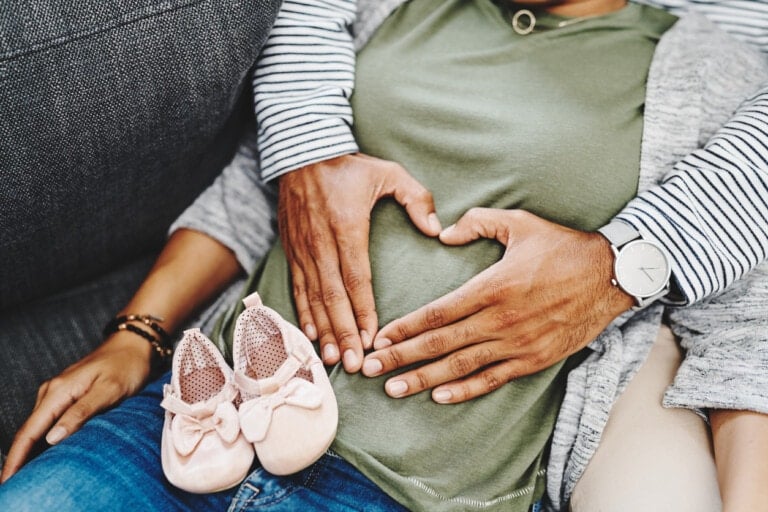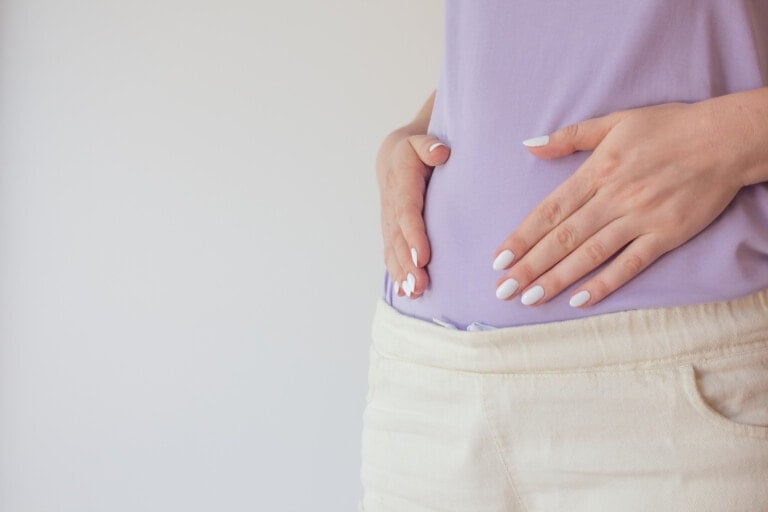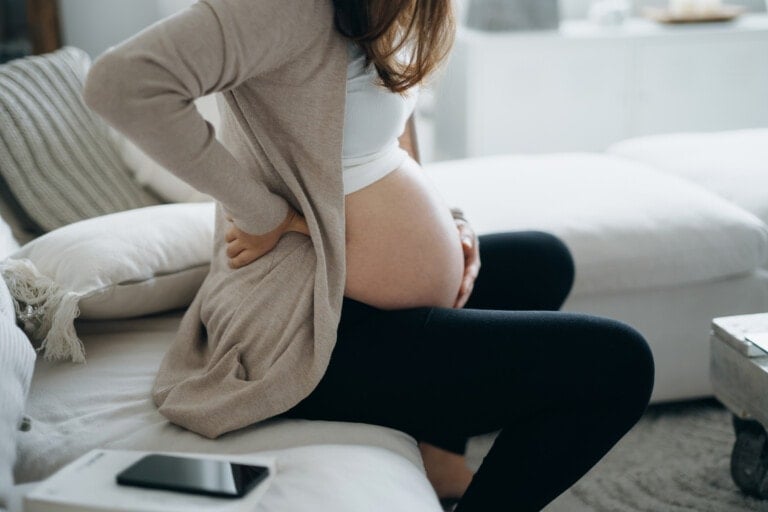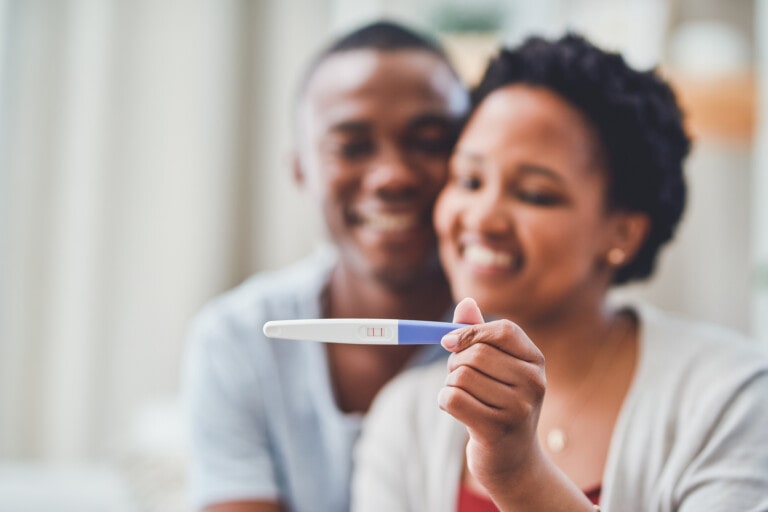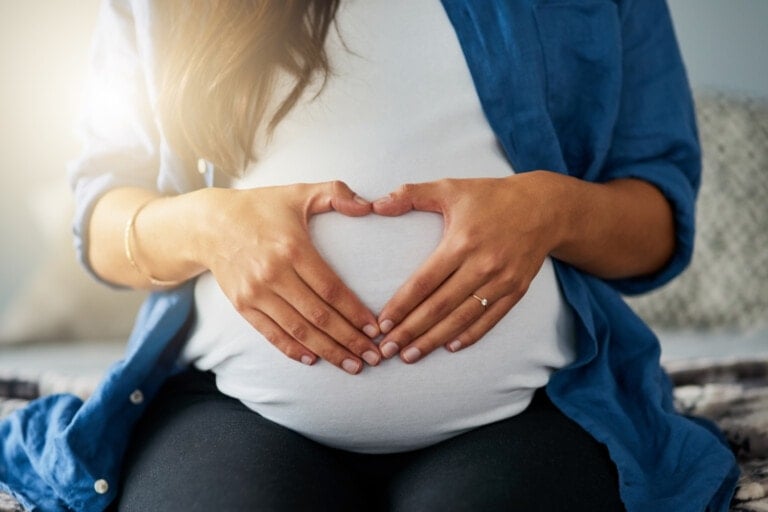Sore breasts during pregnancy are common and often come with sensitivity and aching. During the first trimester, many women can’t stand the shower running on their breasts or clothing touching their nipples. The thought of their partner touching their breasts causes them to cringe. All these experiences are typical and a good sign that you have a healthy level of hormones.1,3
Many changes occur in the breasts during pregnancy as they prepare to feed your baby. Milk glands and ducts develop, blood flow increases and breast tissue grows. The enlargement is a welcome change for some women but brings even more soreness for those who start with large breasts. There are a few tips to help relieve the discomfort of sore breasts during pregnancy.3
Why Do Women Get Sore Breasts During Pregnancy?
Sore breasts during pregnancy are due to hormone changes. Ah, yes. We can blame a lot on hormones. The hormone estrogen rises early in pregnancy. This hormone rise increases blood flow to your breasts. Estrogen also increases the number and size of milk ducts in preparation for breastfeeding. Milk ducts carry milk from inside your breast to your nipples.1,2
The hormone progesterone dominates later in pregnancy. This hormone controls the growth of fatty breast tissue. It also helps the lobes to enlarge and develop. The lobes are part of the breast that will produce milk.1,2
The sore breasts during pregnancy that most women experience come from the growth of the milk duct system and the development of many more lobules.1
What Do Sore Breasts During Pregnancy Mean?
Having sore breasts is one of the first signs of pregnancy. You may experience sore breasts within a week of conception. This soreness and sensitivity usually lessen significantly by the end of the first trimester.3
Sore breasts during pregnancy mean your body is doing exactly what it should. It’s increasing hormone levels and preparing your breasts to feed your baby.
Are Sore Breasts During Pregnancy Normal?
Having sore breasts during pregnancy is typical. One study found that 76% of expectant mothers experience breast pain or tenderness during the first trimester.4
Other Breast Changes in Pregnancy
There are many expected breast changes during pregnancy. Each trimester you’ll experience different changes and discomforts. Some women notice most of these changes, while others only a few. They are all normal.5
First Trimester
- Sore and tender
- Swollen
- Nipples stick out more
- Start to enlarge
Second Trimester
- Larger and heavier
- Soreness may decrease from the first trimester
- Nipples and areola (around the nipples) may get darker and larger
- Veins in your breasts become more noticeable
- You may get stretch marks on your breasts
- Colostrum (the first milk) may start leaking from your nipples
Third Trimester
- Your breasts may get even larger and heavier
- Colostrum may start leaking if it hasn’t already
Breast enlargement has a wide range of what’s expected. Some women hardly notice a difference, while others enlarge several bra sizes. On average, breast size volume increases by 96 ml.7
It’s important to know that it doesn’t matter how much your breasts grow. The size change does not determine how much milk you will make for your baby. The size or shape of your nipples also doesn’t affect your breastfeeding ability.10
How to Alleviate Discomfort
The best alleviator of breast pain and soreness during pregnancy is time. The first trimester is when you experience the most discomfort. After that, most women are much more comfortable. There are a few tips you can try to alleviate discomfort, like the following:5
- Avoid washing the area around your nipples with soap. Soap can irritate and dry out the skin. Only use water.
- Wear a bra that gives good support. Consider getting measured for the correct size. Cotton bras are often more comfortable against sore nipples.
- Try a nursing sleep bra at night. A soft cotton bra without underwires or hooks may be most comfortable.
- Allow your breasts to air dry after showering or bathing.
- Wear breast pads if you are leaking colostrum. The washable type tends to be more comfortable.
- Take an over-the-counter pain reliever. Discuss with your doctor or midwife about what is safe for you to take.
- Cold compresses may help relieve some discomfort. Frozen vegetables work well too.
- Do what feels right. Some women like to massage their breasts or use lotions. Most women avoid the shower directly on their breasts in the first trimester.
- Talk with your partner about your pregnancy discomforts. Let them know what does and doesn’t feel good right now.
When to Be Concerned By Sore Breasts During Pregnancy
Non-cancerous cysts and lumps can develop in your breasts during pregnancy. Some of these lumps need treatment even though they are benign. Let your provider know if you feel anything like a lump in your breast.6
Breast cancer occurs during pregnancy in about 1 in 3,000 pregnancies. Most lumps in the breast during pregnancy are benign. But because it can happen during pregnancy, it’s essential to get diagnosed and treated promptly.8
Let your doctor or midwife know if you have any of the following:9
- A mass or lump in your breast.
- Unusual pain in one area of your breast.
- Puckering or dimpling of the skin.
- Rash or redness on your breast.
- Nipple discharge that is not colostrum, such as bloody discharge.
Tender, aching, sore breasts during pregnancy are a common rite of passage for mothers-to-be, thanks to estrogen and progesterone hormones. These hormones prepare your breasts for breastfeeding by increasing blood supply and growing ducts and lobes. Breast soreness also serves as an early sign of pregnancy. Fortunately, the soreness and sensitivity improve significantly by the end of the first trimester. You can expect many breast changes during pregnancy. But be aware of any unusual changes and report these to your healthcare provider immediately.













